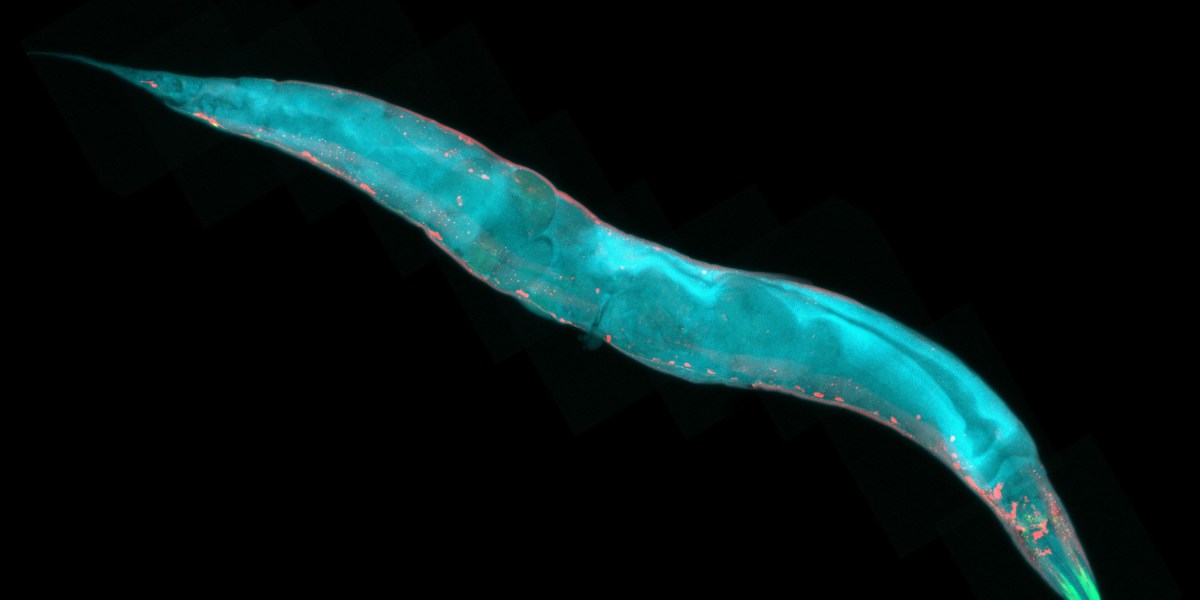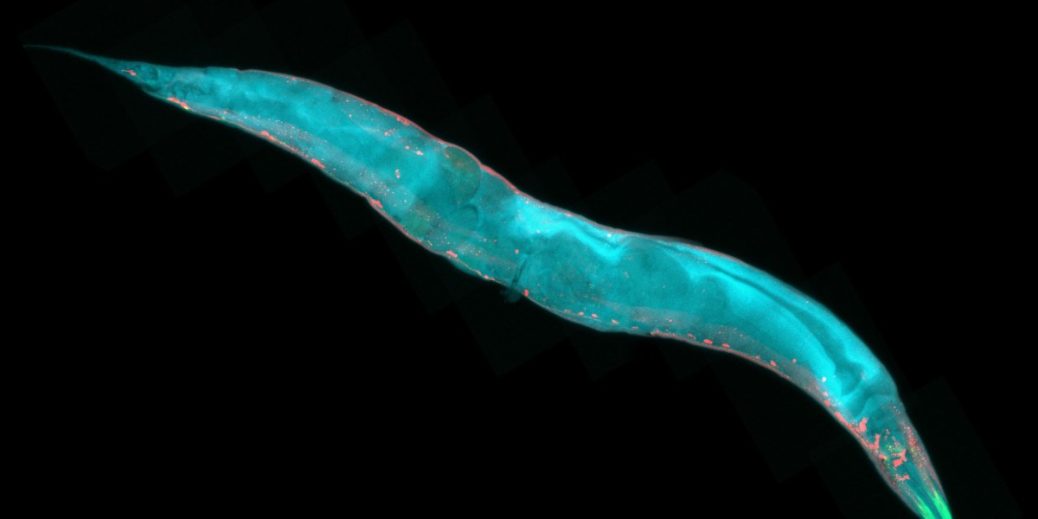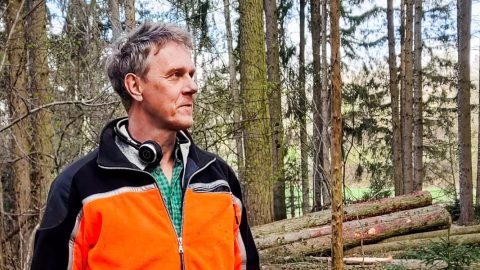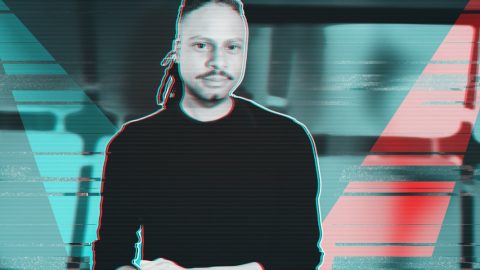
They are two graduate students—Sophie in her sixth and final year, Martin in his fourth—who have traveled from different East Coast cities to present posters on their work. Martin’s shows health data collected from supercentenarians compared with the general Medicare population, capturing the diseases that are less and more common in the populations. Sophie is presenting on her recently accepted first-author paper in Aging Cell on two specific genes that, when activated, extend lifespan in C. elegans roundworms, the model organism of her research.
2.
Sophie walks by Martin’s poster after she is done presenting her own. She is not immediately impressed by his work. It is not published, for one thing. But she sees how it is attention-grabbing and relevant, even necessary. He has a little crowd listening to him. He notices her—a frowning girl—standing in the back and begins to talk louder, hoping she hears.
“Supercentenarians are much less likely to have seven diseases,” he says, pointing to his poster. “Alzheimer’s, heart failure, diabetes, depression, prostate cancer, hip fracture, and chronic kidney disease. Though they have higher instances of four diseases, which are arthritis, cataracts, osteoporosis, and glaucoma. These aren’t linked to mortality, but they do affect quality of life.”
What stands out to Sophie is the confidence in Martin’s voice, despite the unsurprising nature of the findings. She admires that sound, its sturdiness. She makes note of his name and plans to seek him out.
3.
They find one another in the hotel bar among other graduate students. The students are talking about the logistics of their futures: Who is going for a postdoc, who will opt for industry, do any have job offers already, where will their research have the most impact, is it worth spending years working toward something so uncertain? They stay up too late, dissecting journal articles they’ve read as if they were debating politics. They enjoy the freedom away from their labs and PIs.
Martin says, again with that confidence, that he will become a professor. Sophie says she likely won’t go down that path. She has received an offer to start as a scientist at an aging research startup called Abyssinian Bio, after she defends. Martin says, “Wouldn’t your work make more sense in an academic setting, where you have more freedom and power over what you do?” She says, “But that could be years from now and I want to start my real life, so …”
4-18.
Martin is enamored with Sophie. She is not only brilliant; she is helpful. She strengthens his papers with precise edits and grounds his arguments with stronger evidence. Sophie is enamored with Martin. He is not only ambitious; he is supportive and adventurous. He encourages her to try new activities and tools, both in and out of work, like learning to ride a motorcycle or using CRISPR.
Martin visits Sophie in San Francisco whenever he can, which amounts to a weekend or two every other month. After two years, their long-distance relationship is taking its toll. They want more weekends, more months, more everything together. They make plans for him to get a postdoc near her, but after multiple rejections from the labs where he most wants to work, his resentment toward academia grows.
“They don’t see the value of my work,” he says.
19.
“Join Abyssinian,” Sophie offers.
The company is growing. They want more researchers with data science backgrounds. He takes the job, drawn more by their future together than by the science.
20-35.
For a long time, they are happy. They marry. They do their research. They travel. Sophie visits Martin’s extended family in France. Martin goes with Sophie to her cousin’s wedding in Taipei. They get a dog. The dog dies. They are both devastated but increasingly motivated to better understand the mechanisms of aging. Maybe their next dog will have the opportunity to live longer. They do not get a next dog.
Sophie moves up at Abyssinian. Despite being in industry, her work is published in well-respected journals. She collaborates well with her colleagues. Eventually, she is promoted to executive director of research.
Martin stalls at the rank of principal scientist, and though Sophie is technically his boss—or his boss’s boss—he genuinely doesn’t mind when others call him “Dr. Sophie Xie’s husband.”









Recent Comments